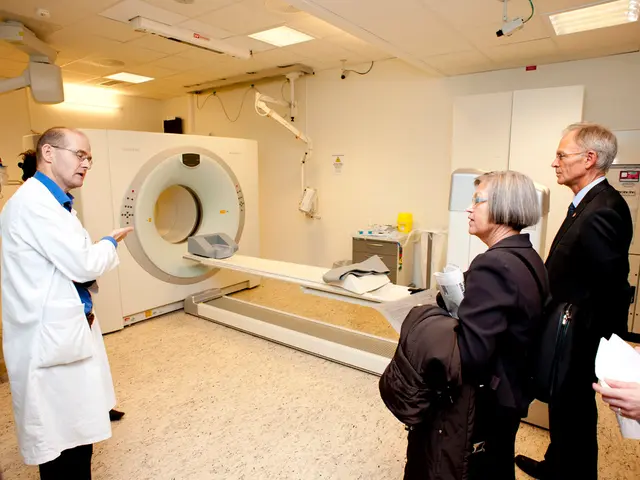Depression-related brain network uncovered.
Depression and the Brain: A Deeper Dive
New research from the Universities of Ottawa and California has shed light on the brains of individuals with depressive disorder. It turns out, these folks have nearly double the activity in what's known as the significance detection network - a system responsible for attention shift and processing emotional stimuli. This groundbreaking discovery, published in Genomic Psychiatry, could pave the way for early diagnosis and targeted treatment.
Diving into the details, these researchers analyzed functional MRI data and found that the majority of people with current or past depression exhibited heightened activity in this network. This hyperactivity manifests in areas connected to emotions, decision-making, and response to rewards. This overactive network may hinder the brain's ability to switch thoughts and contribute to rumination on negative experiences, a common symptom of depression.
Dr. Nicholas Fabiano, one of the study's authors, expresses optimism about the identified marker. He believes it could serve as a valuable tool for early diagnosis, even before symptoms become apparent. Early treatment could prevent the disorder from significantly affecting a patient's life.
The team also provided potential explanations for these changes: compensation in brain reorganization, genetic influence, or atrophy of other zones, making the significance network appear larger.
Depression, they stress, is more than just a neurotransmitter imbalance. It's a breakdown in communication between different brain regions. This new data could lead to the development of personalized treatment approaches, including neuromodulation and therapy based on neural network reorganization, such as through exercise or medication.
Previous studies have identified various diseases and chronic health conditions that increase the risk of depression. These include:
- Neurodegenerative diseases like Alzheimer's and Parkinson's, resulting from changes in brain function and the psychological impact of these illnesses.
- Chronic physical health conditions such as diabetes, COPD, and cardiovascular disease, often characterized by ongoing physical stress, lifestyle limitations, and management burdens.
- Chronic pain conditions, causing both discomfort and functional impairment, leading to increased vulnerability.
- Cancer, with one of the highest rates of depression among chronic diseases, primarily due to the psychological impact of diagnosis, treatment, and prognosis uncertainty.
- Infectious diseases like tuberculosis and HIV/AIDS, where fear of contagion, complex treatment regimens, and social stigma exacerbate mental health challenges.
- Sleep disturbances and related medical illnesses, which often overlap with or trigger depression.
Depression can also complicate or worsen other conditions, such as increasing the risk or severity of diabetes, cardiovascular diseases, and respiratory disorders like COPD and asthma. Managing these underlying conditions and providing mental health support are crucial to reducing the incidence of depression in affected patients.
- This recent research in the field of science, particularly neuroscience, focuses on the health-and-wellness aspect of individuals with depressive disorders, delving into the brain's significance detection network, a system associated with attention shift and emotional stimuli processing.
- The understanding of mental-health issues, such as depression, expanding beyond neurotransmitter imbalance, could potentially lead to personalized treatment approaches in health-and-wellness, including neuromodulation and therapy based on neural network reorganization, as highlighted in the study.




